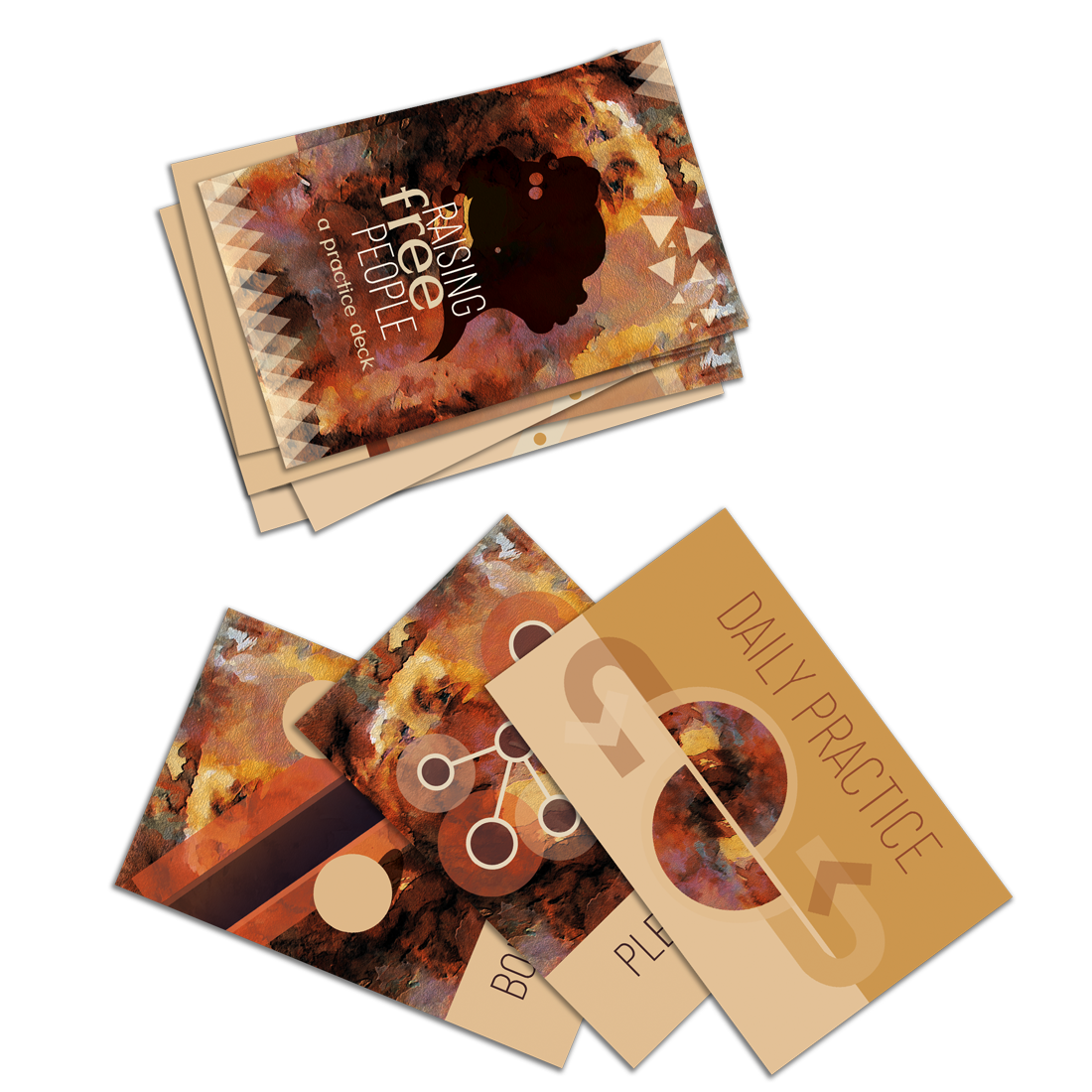Schoolishness [skool-ISH-nəs]
Conventional practices that are rooted in binaries, and generally accepted by adults, but rejected by children and teenagers, either overtly or covertly. A living out someone else’s goals or narrative of how and what we should be. Schoolishness models an authoritarian approach to adult-child interaction as well as respectability ideas rooted in adults’ innate superiority in knowledge.
Deschooling
Shedding the programming and habits that resulted from other people’s agency over your time, body, thoughts, or actions. Designing and practicing beliefs that align with your desire to thrive, be happy, and succeed.
Sovereignty
Sovereignty is about understanding and making choices outside of the misaligned information that you’ve been taught to see, believe, and follow. A true sincere peace, understanding and wisdom of how you came to your choices and decisions, with no decision-altering guilt or fear-based regard to possibilities of boat-rocking and upheaval of what used to be one’s “norm”. Essentially, sovereignty is a consistent act of self-ownership and healthy self-governance, often carried out in spite of external factors like family and friend’s contrary opinions about one’s lifestyle choices.
Confident Autonomy
The ability to navigate the world with a strong sense of self that includes compassion for other people, and appreciation of being part of various communities, contributing to those communities and others on purpose and in love. Confident autonomy also includes an awareness of one’s own place in the world, as one, not the world, define it. It means giving space to have particular interests and decide on what to do to practice the skills that will help to be more than students who become adults with an education.
Self-Awareness
The ability to assess your own thoughts and feelings, and to recognize what feels truest for you. Self-awareness also includes the ability to see how your particular needs and way of being/thinking can fit into the world around you.
Self-awareness has two main parts: an internal aspect (examining your own thoughts and needs), and an external aspect (seeing how you, and those unique thoughts and needs, can function and feel well in the world around you).
Reparenting
The practice of going back to your own inner child to inquire, to comfort, to listen and to love. It is about being there for yourself as a means of nurturing the little version of you by saying, I’m sorry that happened to you/us, here’s what I needed/need now, and then walking towards those needs with the support of your adult self and your adult resources.
Self-Directed Education (SDE)
Self-Directed Education (SDE) is an umbrella term that basically means that the education is learner chosen and learner driven, even though it’s not always learner led. So in SDE, you can still have a teacher that’s telling you exactly what to do, exactly when to do it. But you chose it for yourself, meaning it wasn’t forced upon you, then it’s a self-directed process. What a lot of us i SDE like to say this is that there are two main questions you can ask to gauge whether something fits under the SDE umbrella (unschooling is one type of SDE): 1) Did the learner choose to do this activity? 2) Can the learner quit the activity without recourse or pushback from an adult (if the learner in question is a child)? If both answers are yes, then it’s SDE.
Unschooling
A child-trusting, anti-oppression, liberatory, love-centered approach to parenting and caregiving. It is also creating and expanding communities of confident, capable people who understand how they learn best, and how to work collaboratively to learn and solve things.










